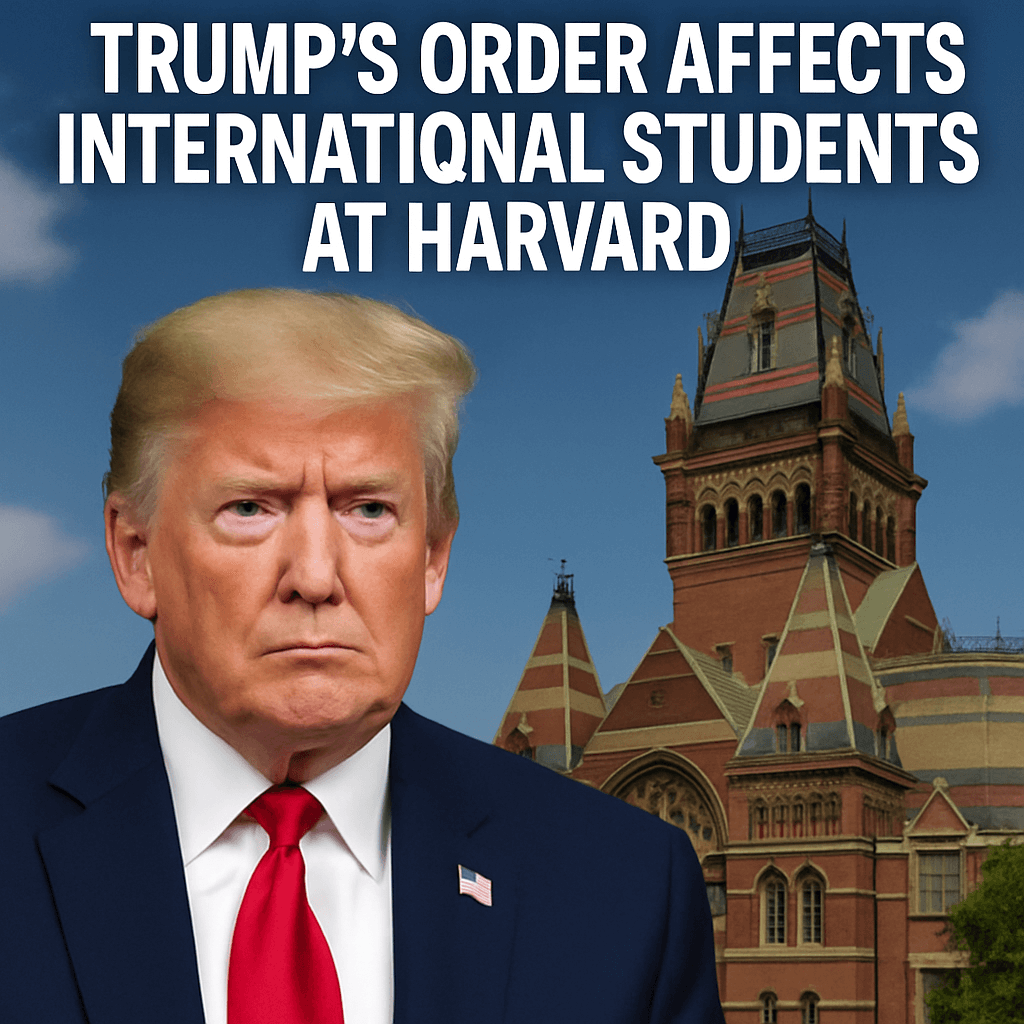Trump’s Order Affects International Students at Harvard

In a significant political maneuver, President Donald Trump has initiated steps to prevent nearly all foreign students from entering the United States to attend Harvard University, a prestigious institution known for attracting a diverse international student body. This executive order, signed on a recent Wednesday, aims to sever a key international pipeline of talent that constitutes roughly 25% of Harvard’s total enrollment.
National Security Justifications
In the executive order, Trump expressed concerns over national security, asserting that allowing foreign students to study at Harvard poses a threat to the interests of the United States. He stated, “I have determined that the entry of the class of foreign nationals described above is detrimental to the interests of the United States because, in my judgment, Harvard’s conduct has rendered it an unsuitable destination for foreign students and researchers.”
Legal Framework and Authority
The order employs a broad legal framework that gives the president the authority to prohibit entry to foreigners whose presence may jeopardize U.S. interests. This legal precedent is grounded in various federal statutes, including one that bars entry to individuals linked to terrorist organizations. Trump also referenced the authority when delineating bans affecting citizens from numerous nations, further illustrating a pattern of escalating restrictions on immigration.
Harvard’s Response and the Broader Context
In light of the executive order, Harvard officials have denounced the move as an infringement on the university’s autonomy, claiming it violates First Amendment rights. “This is yet another illegal retaliatory step taken by the Administration in violation of Harvard’s First Amendment rights,” a university statement read.
The tensions between Harvard and the Trump administration intensified following the latter’s request for documentation concerning foreign student misconduct, which the university reported as having provided in part. However, the government contends that the response was insufficient, unleashing a series of political and administrative confrontations.
Government Pressure and Policy Demands
The administration’s push for policy changes at Harvard reveals a broader agenda aimed at reshaping the perceived liberal bias prevalent in academia. Trump’s officials have accused the institution of fostering an environment conducive to anti-Jewish harassment, demanding that Harvard comply with various federal requirements.
Continuing efforts to leverage federal funds as a tool of pressure, the administration has previously cut over $2.6 billion in research grants to the university while pursuing the elimination of all federal contracts associated with Harvard. The implications of these actions are significant, affecting approximately 7,000 international students currently enrolled at Harvard.
Implications for International Students
The official order stipulates that students attempting to enter the United States after the order’s announcement will be affected. While it contains provisions that could exempt students whose presence would benefit national interests, the uncertainty and fear generated by this executive action have led many international students to consider transferring away from Harvard.
Public Reaction and Legislative Oversight
In response to Trump’s order, various lawmakers, including Representative Pramila Jayapal, have criticized the measure as a misguided attack on free expression. Said Jayapal: “It’s a thinly veiled revenge ploy in Trump’s personal feud with Harvard.” This sentiment is echoed by many within the academic community who view such actions as threatening not only the university’s integrity but also the principles of academic freedom and diversity.
Future Outlook
The executive order is designed to remain effective for six months, with a review planned within 90 days to assess its renewal. As the State Department shifts its focus to monitoring the social media of visa applicants heading to Harvard, the situation presents broader questions about civil liberties and the administration’s overarching immigration policies.
Conclusion: As the standoff continues, it remains to be seen how this executive order will reshape the landscape of higher education in the U.S. and impact the influx of international students, who have long been a vital component of America’s scholarly and cultural milieu.
Source: fortune